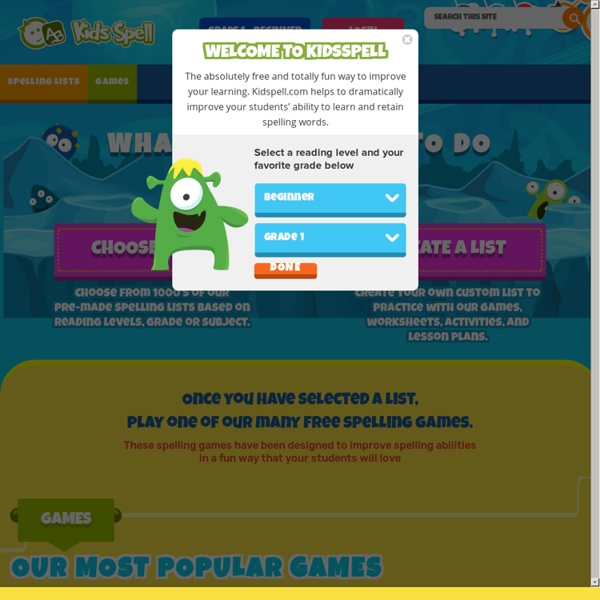



Melulater: My spelling programme - the Essentials first. Spelling is a somewhat contentious issue. As I have worked in a variety of schools I have seen a variety of spelling programmes. Some I found underwhelming, others I found overwhelming. Welcome to the online fairy tales page! People have been telling each other fairy tales since ancient times. A very significant literature genre, fairy tales are present in all cultures around the world. In comparison to myths and legends, the time and place of occurrence in fairy tales are not defined. Their characteristics include the appearance of fantastic elements in the form of talking animals, magic, witches and giants, knights and heroes. It wasn't until the 17th century that fairy tales in Europe were written down and preserved for future generations. The first to do research on fairy tales was the indologist Theodor Benfey during the 19th century.
Free Printable Math Worksheets Math Games on-line, timed Basic Facts addition, subtraction and multiplication quizzes (Good for any grade - improve basic skills) Math Brain Teaser (Grade 3 and up) Mathematical Magic Trick (practice your 2 times tables and 5 times tables) Mathematical Magic Trick - Calculator (practice using a calculator) Astronomy For Kids - KidsAstronomy.com Between the Lions Come play again later! Come play again tomorrow!
Verb Tense Tutorial Verb tenses are verb forms (went, go, will go) which English speakers use to talk about the past, present, and future in their language. There are twelve verb tense forms in English as well as other time expressions such as used to. For English learners, knowing how to use English tenses can be quite a challenge. Never fear. Englishpage.com's verb tense tutorial will teach you to think like a native speaker.
Comic Creator The Comic Creator invites students to compose their own comic strips for a variety of contexts (prewriting, pre- and postreading activities, response to literature, and so on). The organizers focus on the key elements of comic strips by allowing students to choose backgrounds, characters, and props, as well as to compose related dialogue (shown at left). This versatile tool can be used by students from kindergarten through high school, for purposes ranging from learning to write dialogue to an in-depth study of a formerly neglected genre. The tool is easy to use, made even easier with the Comic Strip Planning Sheet, a printable PDF that comic creators can use to draft and revise their work before creating and printing their final comics. After completing their comic, students have the ability to print out and illustrate their final versions for feedback and assessment. Grades K – 3 | Lesson Plan | Standard Lesson
Free Printable Worksheets for Preschool through Sixth Grade Mathwire.com Words Welcome to Literacy! My name is Kersti Börjars and I am a professor of Linguistics at the University of Manchester. Together with one of our students, Alex Webb, I have put together these web pages about language. ‘Linguistics’ you may wonder, what on earth is that?! Well, sometimes the word ‘linguist’ is used for people who are good at learning foreign languages, but that is not the way we use it here.
Fun Kids Online Math Games "Sheppard offers everything from early math to pre-algebra. The lessons include interactive activities to practice concepts. Students can shoot fruit, pop balloons, and even play math man (the math version of pac man!). Vocabulary test In this test you get 100 letter sequences, some of which are existing English words (American spelling) and some of which are made-up nonwords. Indicate for each letter sequence whether it is a word you know or not by pressing the F or J key. J: YES, I know this word F: NO, I don't know this word The test takes about 4 minutes and you can repeat the test as often as you want (you will get new letter sequences each time). Advice! Do not say yes to words you do not know, because yes-responses to nonwords are penalized heavily!
Reading Rockets - vocab By: Linda Diamond and Linda Gutlohn Consider some excellent lesson models for teaching vocabulary, explaining idioms, fostering word consciousness, instruction for English Language Learners, and mnemonic strategies. Vocabulary is the knowledge of words and word meanings. As Steven Stahl (2005) puts it, "Vocabulary knowledge is knowledge; the knowledge of a word not only implies a definition, but also implies how that word fits into the world." Vocabulary knowledge is not something that can ever be fully mastered; it is something that expands and deepens over the course of a lifetime.